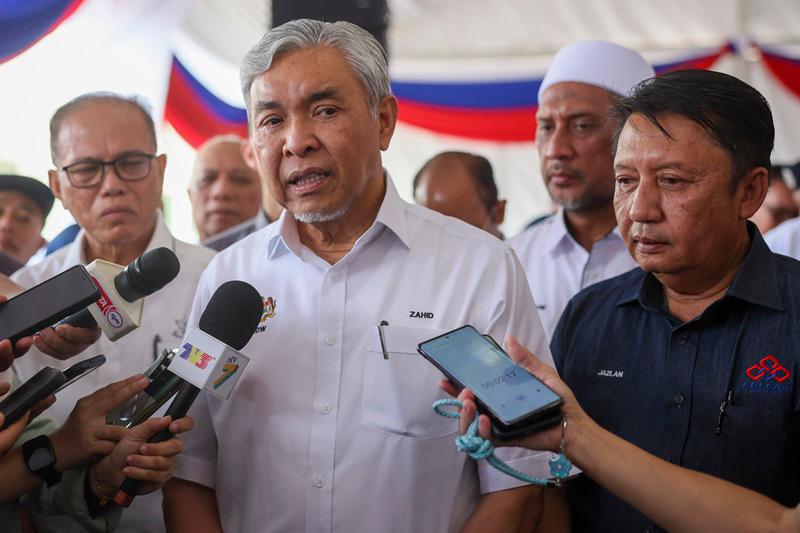JERANTUT: The number of biogas stations which have been built and are operating in this country, especially in the agricultural sector, should be increased, to achieve the national goal of increasing renewable energy capacity to 31 per cent by 2025.
Deputy Prime Minister Datuk Seri Dr Ahmad Zahid Hamidi said the exploration of renewable energy not only reduces the country’s dependence on fossil fuels but also helps reduce the government’s burden in the distribution of electricity subsidies.
He said that the cost borne by the government in terms of electricity subsidies was very high before, as it was given to all groups equally, and because of that the targeted subsidies were introduced.
“Now the target groups, the B40 and M40 groups, are given priority to enjoying (electricity subsidies). With the availability of renewable Energy (RE) biogas facilities as we see today... InsyaAllah, the cost borne by the government will be less than it is now.
“We want the subsidy to be used for development, including the development of infrastructure which is still weak (for example) to access this area. (Therefore) the largest biogas station in Malaysia (Palm Oil Mill Effluent Biogas Power Plant)... and this kind of effort should not stop here,” he said when officiating the 5.5 Megawatt Biogas Power Plant, by Felcra Japutra Sdn Bhd and Cenergi SEA Berhad (Cenergi), here today.
It was also attended by Pahang Menteri Besar, Datuk Seri Wan Rosdy Wan Ismail.
Ahmad Zahid, who is also the Minister of Rural and Regional Development, said to realise this goal, he wants nine Felcra Bhd mills across the country to set up biogas station facilities to generate renewable energy.
“I (also) will meet to discuss with Felda to have the same factory in all Felda settlements. This is in the interest of the country.
“This (also) is in line with the aspiration of the Prime Minister (Datuk Seri Anwar Ibrahim), looking ahead, that our dependence on natural resources should be slowly and reduced in phases, by using energy from new sources,” he said.
Ahmad Zahid said that the potential of renewable energy is very large, and because of that, he expects more government-owned companies to collaborate with high-prospect private companies, to stimulate the country’s economic growth, especially in industries such as biogas.
The largest palm oil mill effluent biogas power plant project in Malaysia, with a capacity of 5.5 megawatts (MW), at the Felcra Jayaputra Palm Oil Mill, here, which started full operations on April 11, is capable of supplying electricity to nearly 14,000 homes, or about 70,000 rural residents.
It is the largest grid-connected biogas power plant in the country, which has been recognised by the Malaysia Book of Records.









